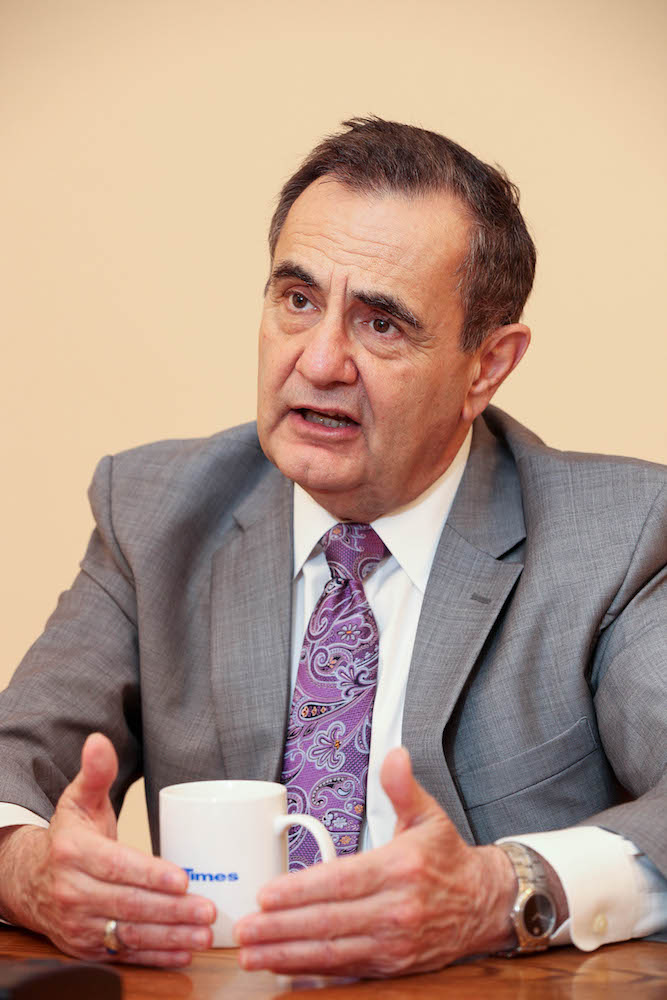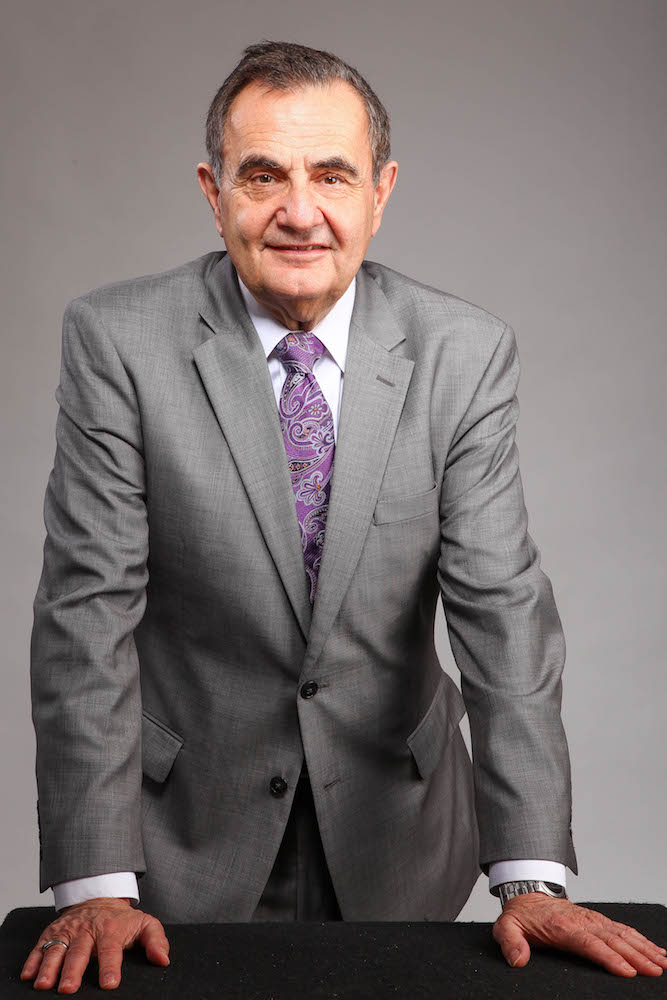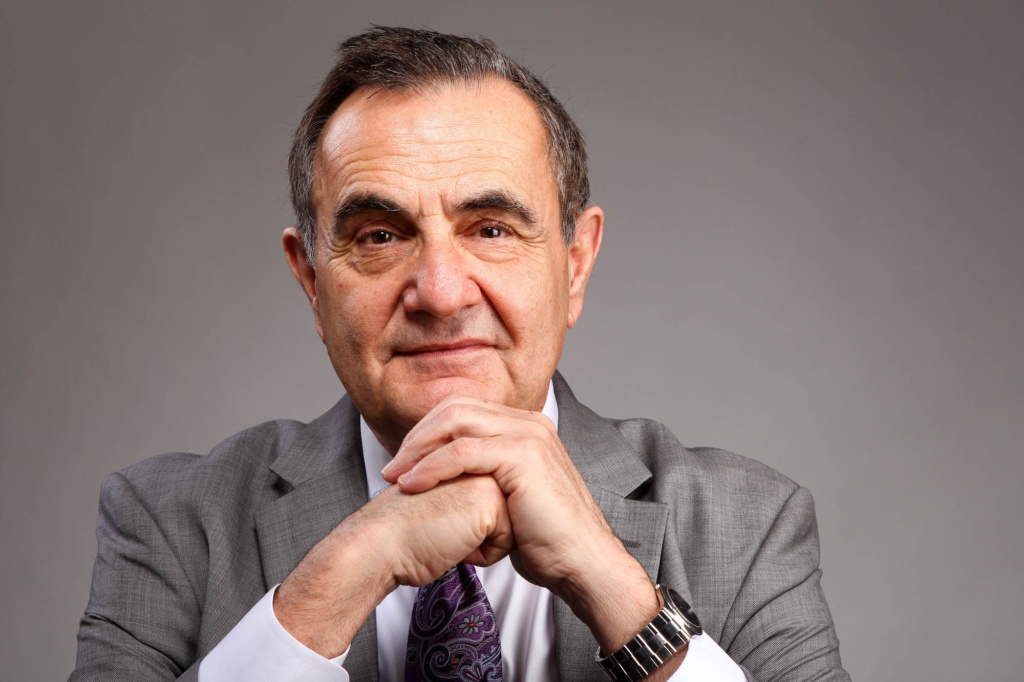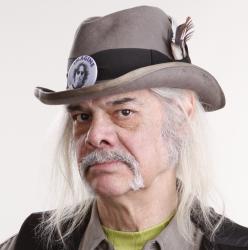Joe Nicoletti believes he can win the city of Syracuse’s coming mayoral election for two reasons: He has an incredible amount and range of experience in governance and civic administration, and his age. At 69, he notes, he is younger than Hillary Clinton, Donald Trump and Bernie Sanders.
“Hey, they all wanted to be president,” he reflects. “I just want to be mayor.” At his age, he observes, he doesn’t have the future to worry about. “I’ll be the mayor for now,” he projects, “and leave this city booming for the future.”
Approaching the Sept. 12 Democratic primary, he has the Working Families Party nomination, assuring him of a line on the Nov. 7 ballot. He is also billing himself as the real progressive in the race, with a campaign slogan of “We are as strong as what the least of us has.”
His relevant experience, he maintains, included tenure on the Common Council and state Assembly and a stint as an administrator at City Hall under former Republican Mayor Roy Bernardi. He has also logged extensive mayoral campaign experience, although not, he insists, the four previous shots The Post-Standard attributes. When cited as contemplating switching parties to run as a Republican in 2000, a move state Sen. John DeFrancisco is credited with crushing, Nicoletti says it wasn’t real. He says this time will be the fourth.

What is your job description for Syracuse mayor?
I know this can be a better city. I could tell you that it is important to have a mayor who is a communicator, a consensus builder, a cooperator, a dreamer, someone that can deal with all the contested people, someone who can take themself out of the universal equation and do it not for themself but for the people they represent. The man or woman must be compassionate. He or she must be dedicated. But also a mayor must be experienced. A mayor must have relationships and a mayor must understand that it’s great to look to the past, but it’s more important to look to the future.
Should we metropolitanize the city and county governments?
If you’re talking about the model that’s been suggested to us, I don’t believe that model will work. And I say that respectfully. I believe that all good sharing of services doesn’t go from the top down, but rather comes from the bottom up. I’ve learned that, not only in the classrooms, but I’ve learned it through experience.
I also believe that if we’re going to talk about sharing services in a massive way, that the school district needs to be on the table. Unless we can deal with that, I don’t see us making much progress. I am one that believes that the first day in office that my conversations with the county executive will be, “How do we work together? How do we promote the dialogue? How do we work together to come up with solutions to benefit all our people?”
I think we get too hung up with these imaginary lines that exist between the city and the county or towns and villages and the county, and we have to understand that all our actions have a reaction across the county. And to suggest that some don’t really care, but you should care because what happens in the city has an impact on the county as well as what happens in the county has an impact on the city.
Should we consolidate the city schools with those in the county?
When I was a member of the New York State Assembly, my assembly district had a city parks and recreation, a county parks and recreation, the town of Geddes parks and recreation, and I think the village of Solvay had one. To me, that was symbolic when I sat in Albany as an example, but also looking at other issues of duplication of services. For example, the competition between the IDAs (industrial development agencies) has to be eliminated because the developer wins.
To get back to the school district, what I’m suggesting is we really need to get together a group of people with no expectations, but an expectation of “How do we make it better for all our children?” You start with a common denominator to make it better. That’s the way I operate. I’ve built a reputation on bringing people together, whether it was the famous Hotel Syracuse strike, whether it was among the councilors, whether it was private industry or the neighborhoods. You have to find common ground, you have to realize their differences and you have to build trust.
What should we do with Interstate 81?
I believe the road has to come down. Right now I favor the community grid. I am waiting anxiously for the final study, which by the way took place because of people like Senator DeFrancisco, and I give him credit, and Assemblyman Bill Magnarelli, who responded to their constituents across the board, who raised legitimate questions. I’m waiting for the new study to come out.
But more importantly than the new study, we have to be prepared as a city to meet this challenge. No one has an inkling of whether the community grid, or any other project, what’s the impact it’s going to have on the city. I know it.

Even when we built Clinton Square, closing Erie Boulevard, the planning that needed to be done. We had the Labor Day storm and the mayor put me in charge of opening up this city which was closed from one end to the other, what we had to do to open up the traffic. So we have to plan for this. It’s going to be a tremendous impact.
I am for the grid because I want to remove the economic and racial barriers that separate this community. If we aren’t big enough to admit that that is a racial and economic barrier to this community, then we simply lost.
Secondly, we have to use this Interstate 81 project as a community benefit. If there are 500 or 1,000 jobs, I want to make a deal with the governor and with Department of Transportation Commissioner Matt Driscoll, that they allocate so many jobs. We need jobs for people who are unemployed. I want to take people from our poorest neighborhoods and train them to work in construction on that job. Why? Because we’re giving them a job.
What needs to be developed in the center city, who should be doing it and who should be paying for it?
First of all, we need to strengthen our economy. And how do we strengthen our economy? We do it by providing community benefits and jobs for everybody. We do it by stop having lawsuits, by negotiating across the table. We do it by making peace with Onondaga County. My reputation has been with organized labor, which I have never backed down from helping, and solving strikes, solving conflicts in neighborhoods and working with people.
I’m not the most glamorous candidate. I’m not going to get up and promise a lot of things. But this is about electing a mayor, and when you’re a mayor, you shed your political label. I know this better than anybody. You’re not a Democrat or Republican. You’re a public servant. You’re not a dictator. You’re not all righteous. You have to work for the people and reflect all of their views and learn to bring them together. That’s what this election is about.
Syracuse has the poorest communities of color in the country. As mayor, what could you do?
First of all, we should be ashamed of ourselves. We should be ashamed of ourselves. We count ourselves as leading in the arts and green technology, and thanks to County Executive Joanie Mahoney we are. But we have forgotten.
My dad, a very wise man who worked in a factory and helped put me through college, taught me a long time ago, “You judge your success by what the least of us have.” And that is going to be the slogan of this administration.



